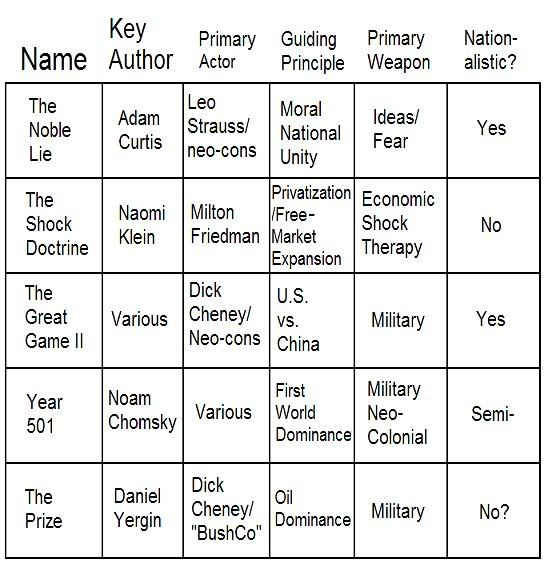I was with a friend the other night, another writer on The Environmentalist with whom I’ve been visiting over the holidays. We were reflecting on 2007, which has been a far more difficult year for her than for me, and how long it’s taken the rest of the world to get how much trouble we’re in.
This came up during a viewing of François Truffaut and Nicolas Roag’s 1966 production of Bradbury’s Fahrenheit 451 with Oskar Werner and Julie Christie. If you haven’t seen it or read it, I recommend it; the story of a “fireman” living in a totalitarian society, whose job is to set books afire, not to question what might be inside them — which he eventually does. (Note: There’s a remake planned, but no guarantees it will retain the calm horror of the original).
There is the moment when Montag, the main character, settles down with his evening “newspaper” which is entirely in graphic novel format. They got their news that way and through large “wall sets”, where they were fed only what the state wants them to know, in between pills for either stimulation or sleep. Equally telling was the comment by a character about her husband being away. Montag challenges her. She doesn’t know that her husband has been called to some war that they know nothing about and asks him what it matters anyway, as it is always someone else’s husband that gets killed.
More below the jump…
My friend and I talked for hours after it was over, what it had meant then, what it means now, how so many of the crimes were committed with the willing cooperation of the citizenry, either through ignorance, apathy or spite.
How small the view of the world within Fahrenheit 451 had become.
I told her I felt, from my weary world view (I’m from the U.K. originally, still have family there; moved to the U.S. as a child), that Americans have been shockingly slow to realise their impact upon the world, that it seemed we (I’m a citizen now, thank you) had regressed during these seven years of low expectations by our government: Shop! Don’t pay too much attention! Be sure to become very afraid when we want you to!
My friend called it a top-down problem, learned examples of what happened to those who have spoken out, who called the government on their tactics; that they have often been treated as badly by those who should be supporting them — the moment in the movie when Montag’s wife turns him in, the pack mentality of those who stand at their front steps upon instructions to look for him in the streets. That our current generational arc, from the Baby Boomers to Gen Y, have not been raised with the sense of both the innocence and self-responsibility that was the hallmark of the WWII generation. That something had become lost in our society since then. Which, she worries, may have left us vulnerable to the rising power of Montag’s wife over Montag.
There are climate scientists who have experienced that, as did Valarie Plame, among others. We see it in workplace, where people are nearly killing themselves through stress and long hours for diminishing returns, while the world gets more expensive, the middle class disappears and the top one percent makes as much as the rest of the population combined.
But there’s another side, a dark underbelly that has arisen in the wild west of the Internets, a pack mentality, the people seated at their computer screens looking for someone to blame rather than to encourage, while waiting for instructions from equally anonymous informal leaders telling them to go to their virtual doorsteps and use the teeth of their keyboards to tear apart those they’d been instructed to attack, without ever knowing the true motivation of those initiating the attack.
This distancing of personal responsibility through anonymity, the irresponsible and hateful behavior that led a thirteen year old girl to take her life after an Internet hoax told her she’d been rejected by a boy, or the father who was just convicted for killing a white boy he thought had come to attack his black son after another hoax had said the black youth had intended to rape the white youth’s white female friend. And there are others I know who have experienced similar attacks, many others.
This year has simply exhausted me and my friends, all of us. We are weary of deception, weary of how our mentors, our educators, our researchers’ reports are being edited, weary of Orwellian tricks with legislation, weary of the cruelty, weary of the roving packs, weary of scapegoating as way for others to feel comfortable with their mistakes (you know who you are), weary of a conference among all world leaders, where the truth is no longer denied, but arrogantly ignored; where two years is the compromise to decide what to do about climate change, when the reports have given their recommendations, which means not enough will be done in time.
WEARY of the immaturity and shortsightedness of those go to work (if they still have jobs) and say, how does this all effect me, as thousands sit numb and devastated in Bangladesh because too few have reported that Cyclone Sidr’s storm surge was identical in manner to the tsunami that hit in the Indian Ocean; that the only difference was a) Bangladesh warned their people in time to reduce the death toll, and b) it was caused by climate change rather than an earthquake…
I want to be optimistic about 2008. I’m not normally so dour, though that may be the natural progression of my personality, given my heritage. But, I also see that this year should have been an opportunity for change, that we had this one chance to make it right, to turn things around, to pay attention to the dramatic loss of ice at the poles and say, wait a minute, this really is an emergency.
I’ve asked my friend to help me with a list of resolutions for next year. Despite her own Annus Horribilis, she is, by nature, more optimistic than me. I won’t list hers here, though she had me laughing near to tears, as I’ve encouraged her to put it on her site.
But I will relay this one bit of wisdom: In 2008, we should all see ourselves as part of a whole, as an army, if you will, to change the laws needed to fight climate change and tge loss of liberties, to change the legislators needed to effect that change, to come together behind whoever ends up on the democratic ticket, because there’s no one on the other side who has proven they will change the status quo enough for the better — unless, she added, you happen to like Huckabee’s floating cross, then there’s nothing anyone can do for you.
See why I like her?
Here are my resolutions:
I will try to be less dour.
I will try to gain weight (hey, it’s a problem).
I will speak out more at conferences, even if it cost me my job (which it may).
I will get involved in the political process, because it effects my life, even though I find politics disgusting.
I will get behind the 2008 democratic candidates, even if it feels like pulling teeth, because the alternative is no alternative.
I will find the time to travel to New Orleans and face up to my lack of effort there.
I will find the time to travel to Bangladesh to do the same.
I will only buy fair trade, organic, and ethical goods from now on.
I will stand behind my friends when they’re attacked, whether it’s because of editing or on the Internet and worry less about becoming a target myself.
I will have more courage.
I will have more courage. That’s the one I have to keep.







